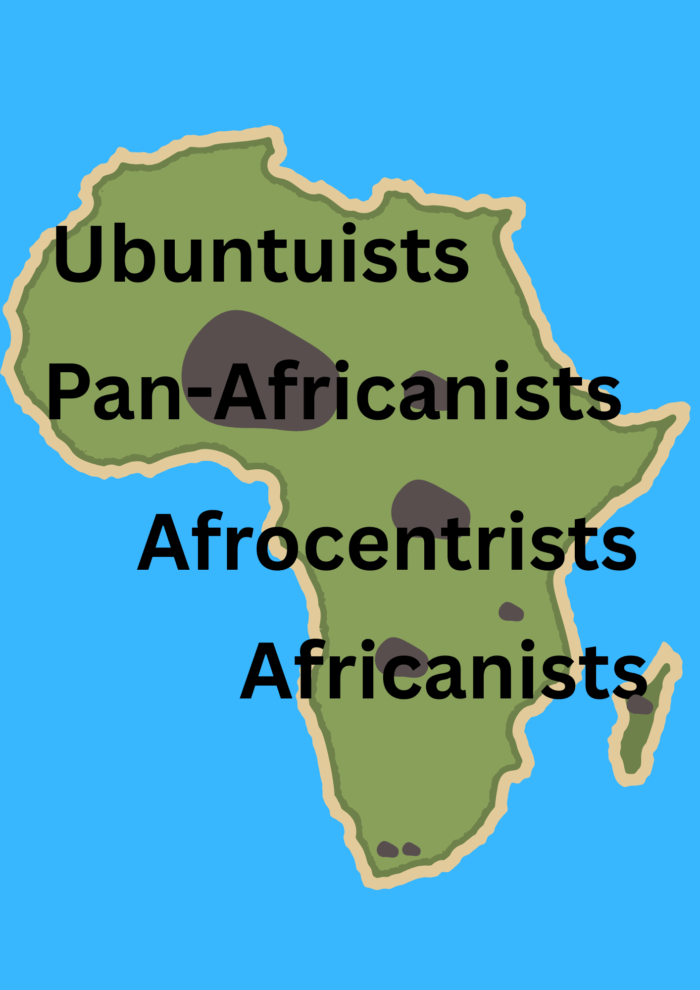
Understanding African thought and identity from Africanist to Ubuntuist: what are you?
What am I?
An Africanist is someone who engages deeply with African topics such as history, politics, languages, cultures or philosophies. The term is most commonly associated with academic or professional study, but it can also refer more broadly to anyone with a serious commitment to understanding and interpreting African realities. Africanists may be African or non-African, and their work may or may not be rooted in African worldviews. Traditionally, Africanist knowledge has often been shaped by Western frameworks, but there is a growing movement of African scholars and practitioners reclaiming Africanist work from within the continent. An Africanist typically seeks to document, analyse, or interpret Africa, often focusing on describing what is or was in African contexts. An Afrocentrist takes this further by intentionally centring Africa in both theory and practice. Afrocentrism is not only about studying Africa but about doing so from an African-centred perspective. It challenges the dominance of Eurocentric narratives that have historically misrepresented African peoples, civilisations, and knowledge systems. Afrocentrists aim to restore African dignity and agency by elevating African philosophies, histories and identities as primary rather than peripheral. This includes promoting indigenous knowledge, reclaiming African cultural pride, and using African conceptual frameworks (e.g. African cosmologies, family systems, languages) in education, governance and research. The Afrocentrist shifts the question from what is Africa? to what does Africa say about itself? A Pan-Africanist builds upon Africanist and Afrocentrist thought by advocating for unity, solidarity and collective liberation across African countries and the African diaspora. Pan-Africanism is political, cultural and ideological. It emerged in response to colonialism, slavery and systemic racism, and is grounded in the idea that the wellbeing of African people is interconnected, regardless of geography. Pan-Africanists work to dismantle the lingering effects of colonial rule, challenge global injustices, promote African self-determination, challenge epistemic and philosophical colonisation. This includes pushing for African-led regional and global cooperation, economic justice, and cultural revival. While Afrocentrism focuses on re-centring African narratives, Pan-Africanism adds a vision of continental and global mobilisation towards shared African futures. An Ubuntuist applies the African ethical philosophy of Ubuntu — often translated as “I am because we are” — as a foundational principle for living, organising and relating. She or he is naturally an Africanist, Afrocentrist and pan-Africanist. Ubuntuism reflects a deep African value system rooted in reciprocity, justice, community and interdependence. While Pan-Africanism addresses structural unity and liberation, Ubuntuism focuses on the relational, communal, environmental and spiritual dimensions of how people relate to each other and to the community. An Ubuntuist seeks not only political freedom but social healing, dignity, and belonging. Ubuntuism offers a relational framework for addressing injustice, promoting collective responsibility, and imagining social transformation based on care and mutual respect. In modern contexts, Ubuntuist approaches are being applied in areas like social work, governance, peacemaking and education. Ubuntuists are Afrifuturists.
Use the form below to subscibe to Owia Bulletin.
Discover more from Africa Social Work & Development Network | Mtandao waKazi zaJamii naMaendeleo waAfrika
Subscribe to get the latest posts sent to your email.


